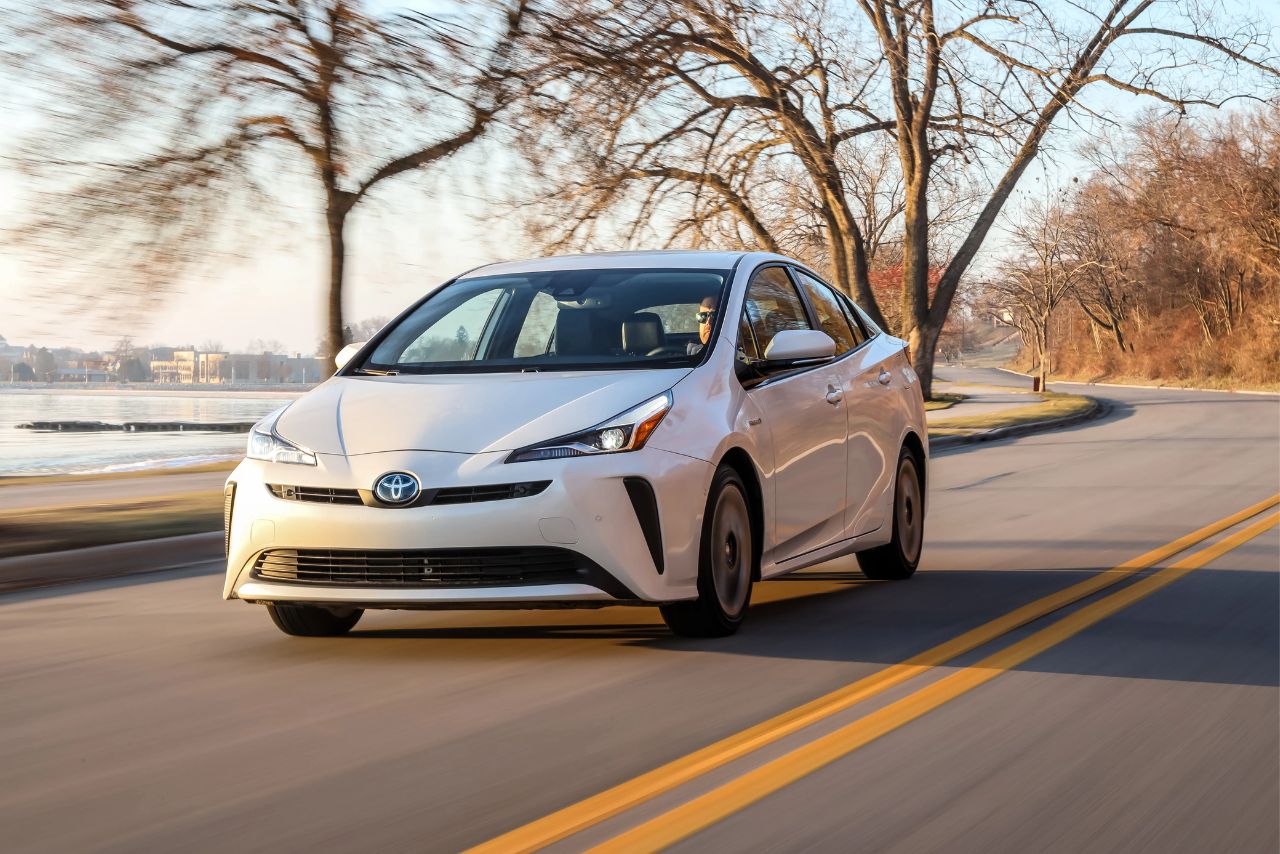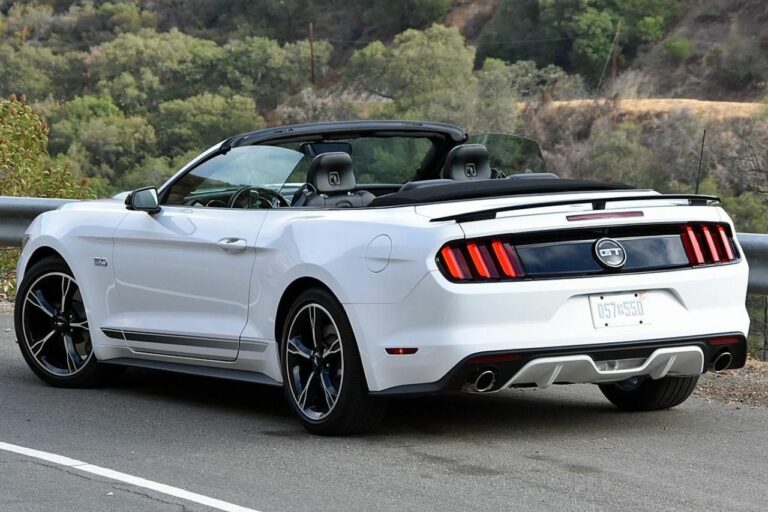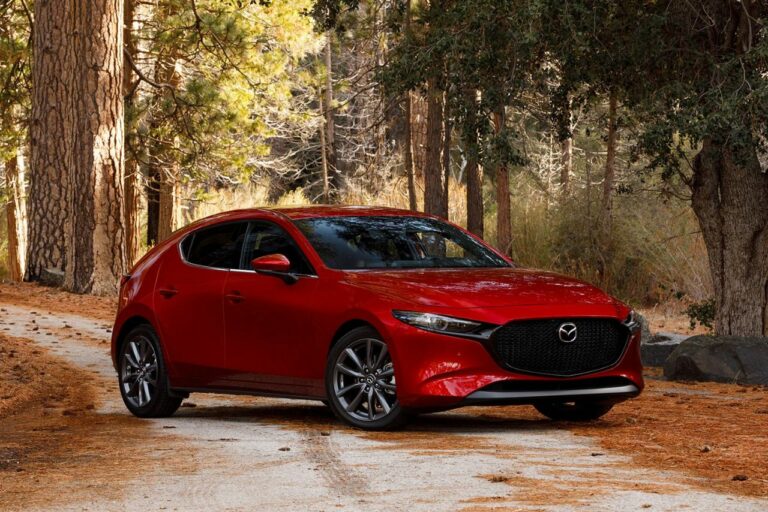Why Are Prius Hated? Unveiling the Myth Behind the Hybrid Car!

The Toyota Prius, a popular hybrid vehicle known for its fuel efficiency and eco-friendly features, has garnered both praise and criticism since its introduction.
Why Are Prius Hated?
The reasons for why some people hate the Prius are varied, but some common reasons include its distinctive appearance, its association with environmentalism, and its perceived lack of performance. Some people may also dislike the Prius due to political or cultural reasons. However, it’s important to note that many people also love the Prius for its fuel efficiency and environmental benefits.
A combination of factors, including their distinct design, perceived smugness from some owners, and negative stereotypes associated with environmentally-conscious individuals.
In this article, we will explore the reasons behind the hate towards Prius vehicles and delve into whether these criticisms are justified or simply misconceptions.
So buckle up as we dig deeper into why the Toyota Prius receives such mixed reviews!
The History of the Prius:
- In 1997, Toyota introduced the first-generation Prius in Japan, marking a significant milestone in hybrid vehicle technology.
- The Prius was initially met with skepticism due to its unconventional design and unfamiliar concept of combining a gasoline engine with an electric motor.
- Despite early doubts, the Prius gained popularity for its fuel efficiency and environmental benefits. It quickly became known as one of the most fuel-efficient vehicles on the market.
- In 2000, Toyota launched the second-generation Prius globally, expanding its reach beyond Japan. This iteration featured improved performance and a more streamlined design.
- As concerns about climate change grew during the early 2000s, so did interest in eco-friendly transportation options. The third-generation Prius debuted in 2009 with even greater fuel efficiency and increased market demand worldwide.
- Over time, various automakers started developing their own hybrid models inspired by the success of the Prius. This further solidified Toyota’s position as a pioneer in hybrid technology.
- In recent years, Toyota has continued to refine and enhance each new generation of the Prius. Advanced features like regenerative braking systems and improved battery technology have contributed to its ongoing popularity among environmentally conscious consumers.
| Prius Generations | Year Introduced |
|---|---|
| First Generation | 1997 |
| Second Generation | 2000 |
| Third Generation | 2009 |
- The introduction of hybrids into mainstream automotive culture challenged traditional notions about car design and power sources.
- Through continuous innovation and technological advancements, Toyota has established itself as a leader in green mobility solutions.
The history of the Prius showcases how this groundbreaking vehicle paved the way for environmentally friendly transportation options while challenging preconceived notions about what cars could be capable of achieving.
Common Misconceptions about the Prius:
There are several misconceptions surrounding the Toyota Prius that have contributed to its negative reputation.
However, it’s important to debunk these myths and shed light on the reality of owning a Prius:
- Slow and boring: One common misconception is that the Prius lacks power and excitement. While it’s true that early models had modest acceleration, newer generations have improved performance capabilities without compromising fuel efficiency.
- Expensive maintenance: Some people believe that maintaining a hybrid vehicle like the Prius is costly due to complex technology. In fact, routine maintenance for a Prius is similar to any other car, with no significant difference in expenses.
- Lack of reliability: Another misconception is that hybrids are less reliable than conventional cars. On the contrary, Toyota has built a strong reputation for producing dependable vehicles, including the Prius.
- High battery replacement cost: Many assume that replacing the hybrid battery pack in a Prius is extremely expensive when it eventually wears out. However, advancements in technology have significantly reduced battery costs over time, making replacements more affordable than ever.
- Limited driving range: Some people mistakenly believe that you can only drive short distances with a fully electric mode before needing to switch back to gasoline power in a hybrid like the Prius. The truth is modern hybrids offer impressive all-electric ranges and smooth transitions between modes.
- Bland design: Critics often claim that the design of previous-generation Priuses was unattractive or unconventional-looking compared to regular sedans or hatchbacks on the market today; however, recent iterations boast sleeker designs appealing to wider audiences.
- Negative environmental impact during production: Opponents argue that producing batteries for hybrids contributes significantly more pollution compared to traditional vehicles’ manufacturing processes; however, automakers prioritize sustainable practices by reducing emissions throughout their supply chains.
By dispelling these common misconceptions, it becomes evident that the Toyota Prius offers a practical and reliable choice for those seeking fuel efficiency without sacrificing comfort or performance.
Environmental Impact of the Prius:
The Toyota Prius is often hailed as an environmentally friendly vehicle due to its hybrid technology.
However, it’s important to examine the true environmental impact of the Prius beyond its fuel efficiency. Here are some key points to consider:
- Reduced Emissions: The main advantage of the Prius is its ability to significantly reduce greenhouse gas emissions compared to traditional gasoline-powered vehicles. This is achieved through a combination of electric power and improved fuel economy.
- Fuel Efficiency: With its hybrid system, the Prius achieves impressive fuel efficiency ratings, consuming less gasoline per mile traveled compared to conventional cars. This translates into reduced carbon dioxide (CO2) emissions and decreased dependency on fossil fuels.
- Battery Production: The production process for hybrid batteries used in the Prius does have an environmental impact. Mining and refining raw materials like lithium and nickel can generate pollution and consume significant amounts of energy.
- Battery Disposal: While modern hybrid batteries have a long lifespan, they eventually need replacement or recycling at their end-of-life stage. Proper disposal methods are essential to avoid any negative environmental consequences associated with battery waste.
- Resource Consumption: Manufacturing any vehicle requires resources such as metals, plastics, and energy-intensive processes that contribute to pollution levels during production stages.
- Lifecycle Assessment: Evaluating the overall environmental impact of a vehicle involves considering factors from manufacturing through usage until disposal or recycling stages — this includes assessing resource consumption, emissions generated throughout each stage, and impacts on ecosystems during material extraction processes.
7.Alternative Considerations: It’s worth noting that there are alternative eco-friendly options available today apart from hybrids like fully electric vehicles (EVs), hydrogen fuel cell cars or utilizing public transportation systems reducing individual car ownership leading towards sustainable urban planning alternatives.
Performance and Power: Debunking Myths!
When it comes to the Toyota Prius, there is a common misconception that they lack performance and power.
However, let’s debunk these myths with some facts:
- Acceleration: While it’s true that the Prius may not have the same instant acceleration as some sports cars, its electric motor provides immediate torque for quick off-the-line starts. The latest models have improved their acceleration times significantly.
- Hybrid Synergy Drive: The Prius utilizes Toyota’s advanced Hybrid Synergy Drive system, which combines power from both its gasoline engine and electric motor. This synergy results in an efficient yet powerful driving experience.
- Fuel Efficiency: One of the main reasons people choose a Prius is for its exceptional fuel efficiency. It consistently delivers high miles per gallon (MPG) figures compared to traditional gasoline-powered vehicles. Its aerodynamic design and regenerative braking system contribute to this impressive fuel economy.
- Eco Mode vs Power Mode: Some critics argue that Eco mode compromises performance in favor of better fuel efficiency while dismissing Power mode as too thirsty on gas consumption. However, drivers can easily switch between these modes based on their preferences or road conditions, striking a balance between power and efficiency.
- Handling and Ride Comfort: Contrary to popular belief, the Prius offers a smooth ride quality with responsive handling characteristics thanks to its well-tuned suspension setup and low center of gravity due to the placement of batteries beneath the rear seats.
- Engine Noise: Another myth associated with the Prius is excessive engine noise during acceleration or highway speeds; however, advancements in technology have made modern hybrids much quieter than earlier generations, providing a quiet cabin environment even at higher speeds.
In conclusion, don’t let misconceptions about performance deter you from considering a Toyota Prius as your next vehicle choice! With improvements made over time incorporating customer feedback, the Prius offers a balance of power, efficiency, and driving comfort that can easily meet the needs of daily commuters and eco-conscious drivers alike.
Price Comparison: Why Are Other Cars Preferred?
When it comes to price, the Toyota Prius often finds itself at a disadvantage compared to other cars in its class.
Here are some factors that contribute to why other cars are preferred over the Prius based on price:
- Initial Cost: The initial purchase cost of a new Toyota Prius can be higher compared to similar non-hybrid models from other manufacturers.
- Alternative Options: Many car buyers prefer purchasing gasoline-powered vehicles due to their lower upfront costs compared to hybrid or electric options like the Prius.
- Lower Maintenance Costs: Some non-hybrid vehicles have lower maintenance and repair costs than the Prius since they don’t require specialized parts or services for hybrid systems.
- Resale Value: While the Prius has a reputation for retaining its value well over time, many consumers still view non-hybrid vehicles as having better resale value, which can influence their purchasing decisions.
- Availability of Incentives: Depending on where you live, there may be more incentives available for purchasing non-hybrid vehicles such as tax credits or rebates, making them more financially appealing.
- Fuel Efficiency Improvements in Non-Hybrids: With advancements in technology, some non-hybrid models now offer comparable fuel efficiency ratings to the Prius without the added cost of hybrid components.
- Preference for Performance Vehicles: For those who prioritize performance and acceleration over fuel economy, sports cars or larger sedans may be preferred despite having higher operating costs related to fuel consumption.
- Perception of Luxury Brands: Some consumers associate luxury brands with status and prestige and are willing to pay a premium even if it means sacrificing fuel efficiency found in hybrids like the Prius.
In conclusion, while price plays an important role in consumer preferences when choosing a vehicle, various factors such as alternative options, maintenance costs, resale value perception of luxury brands, and fuel efficiency advancements in non-hybrids contribute to why the Toyota Prius may be less preferred compared to other cars.
Cultural Perceptions and Stereotypes Surrounding the Prius:
- 1. Environmental Virtue Signaling
- The Prius has often been associated with environmentalism and sustainability, leading some to view it as a symbol of “virtue signaling.” Critics argue that owning a Prius is merely a way for individuals to showcase their eco-friendly lifestyle without making significant changes in other areas.
- 2. Image and Style
- Another reason why the Prius faces criticism is its perceived lack of style or coolness factor. Some people consider it unattractive or boring compared to other car models on the market, which contributes to negative cultural perceptions.
- 3. Hybrid Prejudice
- The hybrid technology used in the Prius was relatively new when it first gained popularity, leading to skepticism and prejudice from those unfamiliar with this type of vehicle. Some people hold negative stereotypes about hybrids, believing they are slow or unreliable.
- 4. Association with Liberal Ideals
- Due to its focus on fuel efficiency and environmental concerns, the Prius has become associated with liberal ideals in some circles. This association can lead to backlash from those who disagree with these political beliefs.
- 5. Cost Considerations
- While not exclusive to the Prius, some critics dislike its higher upfront cost compared to conventional gasoline-powered vehicles. They argue that purchasing a more affordable car would be a wiser financial decision.
It’s important to note that these cultural perceptions and stereotypes surrounding the Toyota Prius may vary among different individuals and regions. However, understanding these factors sheds light on why some people have developed an unfavorable opinion towards this popular hybrid vehicle model.
Future Innovations: What’s Next for the Prius?
The Toyota Prius has been at the forefront of hybrid vehicle technology since its introduction in 1997.
Over the years, it has become an icon of eco-friendly transportation. But what does the future hold for this beloved hybrid?
Let’s take a look at some exciting innovations on the horizon:
- Improved Battery Technology: One of the key areas where manufacturers are constantly striving to innovate is battery technology. In upcoming models, we can expect to see advancements in battery capacity and efficiency, allowing for longer electric-only driving ranges.
- Wireless Charging: Imagine never having to plug in your Prius again! Wireless charging technology is being developed that will allow you to simply park over a charging pad and have your car recharge automatically. This convenience will make owning a hybrid even more effortless.
- Solar Roof Panels: Harnessing solar power to charge your vehicle’s batteries while on the move is another innovation that could soon be available in future versions of the Prius. Solar roof panels integrated into the design would generate renewable energy, reducing reliance on traditional charging methods.
- Smart Connectivity Features: The next generation of Prius models may come equipped with advanced connectivity features that enhance driver experience and efficiency. This could include real-time traffic updates, voice-activated controls, and integration with smart home devices.
- Improved Aerodynamics: To maximize fuel efficiency, automakers are continually working on improving aerodynamics in their vehicles. Future iterations of the Prius may feature sleeker designs with reduced drag coefficients, resulting in better mileage performance.
- Enhanced Safety Systems: As safety regulations continue to evolve, so do car manufacturers’ efforts to incorporate cutting-edge safety features into their vehicles – including hybrids like the Prius. Safety Feature Description Adaptive Cruise Control Maintains a safe distance from the vehicle ahead by automatically adjusting speed. Lane Departure Warning Alerts the driver if they unintentionally drift out of their lane. Forward Collision Warning Detects potential collisions and alerts the driver to take evasive action.
The future looks bright for the Toyota Prius, with exciting innovations set to enhance its eco-friendly performance, convenience, and safety features. As technology continues to evolve, we can expect even greater advancements in hybrid vehicles in the years to come.
Frequently Asked Questions:
What is the average lifespan of a Prius battery?
The average lifespan of a Prius battery is around 8-10 years or 100,000-150,000 miles. Lifespan analysis shows that the battery replacement cost is high, but can be mitigated by proper maintenance and driving habits.
How does the Prius compare to other hybrid cars in terms of fuel efficiency?
When comparing fuel efficiency, the Prius stands out among other hybrid cars thanks to its advanced hybrid technology. It’s also environmentally friendly, with low emissions and a smaller carbon footprint.
Are there any common maintenance issues with the Prius?
If you’re wondering about common maintenance issues with the Prius, there are a few solutions you can try on your own. DIY fixes include replacing the hybrid battery and checking the coolant. Maintenance cost comparison shows the Prius is generally more affordable than other hybrids.
What is the resale value of a used Prius?
If you’re looking to sell your used Prius, you’re in luck. Thanks to high market demand, resale value remains strong. However, factors such as mileage and condition can impact the final price.
Conclusion: Why Are Prius Hated?
In conclusion, the hatred towards Prius cars is a complex phenomenon that can be attributed to various factors.
The negative perception of Prius owners as pretentious and eco-obsessed individuals has played a significant role in fueling this disdain.
Additionally, the unique design of the Prius, often described as unconventional or even “ugly,” has also contributed to its polarizing reputation.
However, it is important to recognize that these criticisms are not without their flaws.
While some may argue that driving a Prius is merely an attempt at virtue signaling, it is crucial to acknowledge that hybrid vehicles like the Prius play a vital role in reducing carbon emissions and promoting environmental sustainability.
Ultimately, opinions on the Toyota Prius will continue to vary widely.
As society becomes increasingly aware of environmental issues and embraces more sustainable transportation options, it remains essential for individuals to approach discussions about different car models with open-mindedness and respect for differing perspectives.






